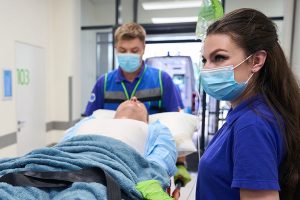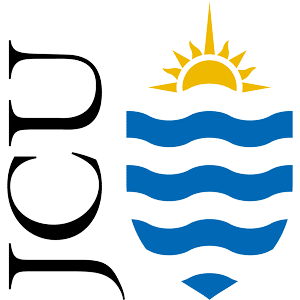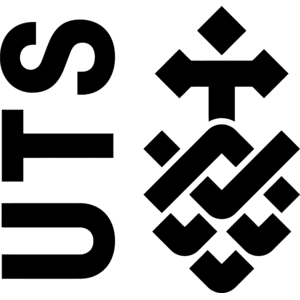Explore the range of graduate programs and specialisations available to RNs in Australia.

Advance your career as a nurse with a postgraduate nursing course in your preferred area of specialisation. You can start with a graduate certificate and then progress to a graduate diploma or masters degree. Flexible online courses allow you to combine part-time study with full-time work.
Graduate Certificates
The Graduate Certificate in Nursing is a concise, flexible program chosen by many nurses and midwives. It contains just four subjects and can be completed online in 8 months of part-time study. Increase your earnings by qualifying for senior roles. It's also a stepping stone to further study.
JCU Online - Graduate Certificate of Nursing
The online Graduate Certificate of Nursing from James Cook University is a flexible and affordable course to meet your professional development goals. Choose from one of three majors: Advanced Practice, Education, and Leadership and Management. Students benefit from fully online delivery and the ability to study part-time while working. The program is designed for registered nurses with at least one year of clinical experience. It offers a fast track to career advancement in as little as eight months. The course also provides a smooth pathway to further studies.
UTS Online - Graduate Certificate in Acute Care Nursing
The Acute Care Nursing course at UTS Online prepares you for advanced roles in clinical environments. It focuses on developing critical skills for patient-centred care. Subjects: Specialty Clinical Practice, Recognising and Responding to Acute Deterioration, Evidence for Informing Practice, and Nursing-Sensitive Indicators in Acute Care. Designed for nurses with a minimum of one year of experience, this program allows for flexible learning around other commitments. Successful completion opens the pathway to a Master of Advanced Nursing.
UTS Online - Graduate Certificate in Advanced Nursing
The Graduate Certificate in Advanced Nursing at UTS Online is a general course for nurses working in complex clinical settings. Developed with the support of industry partners, it offers a well-rounded and contemporary curriculum. Participants complete four subjects over 8 months: Specialty Clinical Practice, Applied Pathophysiology in Practice, Evidence for Informing Practice, and Improving Safety and Quality in Healthcare. This fully online program builds foundational skills in clinical practice, pathophysiology, and quality improvement.
UTS Online - Graduate Certificate in Critical Care
The Graduate Certificate in Critical Care at UTS Online targets nurses seeking to enhance their skills in high-stakes environments. Students learn to analyse complex patient data for informed clinical decision-making. Delivered entirely online, it promotes collaborative learning through real-world challenges. The eight-month program consists of four subjects: Complex Critical Care, Professional Practice in Critical Care, Applied Pathophysiology in Practice, and Specialty Clinical Practice. Applicants must be currently employed in a critical care setting.
UTS Online - Graduate Certificate in Nursing Education
UTS Online's Graduate Certificate in Nursing Education prepares nurses for leadership in healthcare education. The course is online and lasts 8 months. The core subjects are: Creating a Culture of Teaching and Learning in Healthcare, Designing Innovative Learning, and Specialty Clinical Practice. They also choose one elective: Learning and its Trajectories or Strategic Learning in Workplaces. This training enhances skills in evidence-based teaching and managing change. Graduates can move to further studies in Nursing or Education.
Graduate Diplomas
The Graduate Diploma in Nursing is an opportunity for registered nurses to develop advanced skills and knowledge. The 8-subject course can be completed part-time in 16 months of online study. Graduates receive higher qualification allowances than for graduate certificates.
JCU Online - Graduate Diploma of Nursing
The online Graduate Diploma of Nursing at James Cook University is a part-time, 16-month course for registered nurses. It's 100% online, with six start dates yearly. FEE-HELP is available to cover tuition fees. You can specialise in Advanced Practice, Education, or Leadership and Management. Each major blends core subjects such as communication, governance and informatics with specialised topics. The course prepares nurses for advanced roles and offers a pathway to a Master of Nursing, with an early exit option for a Graduate Certificate.
Related: What Is a Graduate Diploma?
Masters Degrees
A Masters in Nursing is the ultimate postgraduate qualification for career nurses. Students do extensive, in-depth study into nursing practice, education or administration. We estimate that there is around a 6% to 65% pay premium for nursing jobs requiring a master's degree.
JCU Online - Master of Nursing
The Master of Nursing Online at James Cook University is a part-time, 24-month program for nurses seeking advancement. It's entirely online, offering flexibility with six starting points each year. Students complete 12 subjects in sequence over seven-week study periods. You can specialise in advanced practice, education, leadership and management, or a combination for a double major. This affordable program prepares nurses for higher-level clinical or leadership roles and offers pathways to further specialisation.
Related: Is a Masters in Nursing Worth It in Australia?
Specialisations
Acute Care
Explore methods to handle rapid-onset and severe patient conditions. Acute care nurses perform patient evaluation, urgent treatment delivery, and manage rapidly changing patient states. Subjects may include emergency patient assessment and urgent care techniques. This field of study is ideal for nurses working in hospitals.
Related: Acute Care Nursing Courses Online
Advanced Nursing
Advanced Nursing courses are for registered nurses who work in challenging environments and wish to enhance their applied skills. Graduates gain proficiency and confidence in performing clinical nurse duties and providing person-centred care. This is an opportunity to enhance professional skills in a targeted way.
Related: What Is a Clinical Nurse Consultant in Australia?
Advanced Practice
Develop skills to provide advanced care to patients. Students explore the ways nurses function and operate within clinical environments. Enhance your nursing practice abilities, with a priority on safety and quality care. Graduates are skilled at managing patients with acute or chronic health issues.
Related: Advanced Practice Nurse: Meaning and Examples
Clinical Nursing
A valuable course of study for almost every nurse. Students develop general knowledge and applied skills. Topics covered may include quality medication application, governance in clinical environments, and advanced health assessment. Programs aim to remain highly relevant to the everyday demands of clinical practice.
Related: What Is a Clinical Nurse Specialist in Australia?
Critical Care
Specialised training in assessing and managing patients, especially helpful if you work in an ICU or similar. Critical care nurses do intricate patient assessments and intensive treatments and interventions. Subjects may include safe medication practices, respiratory assessment, and ECG rhythm recognition.
Related: How to Become a Critical Care Registered Nurse
Emergency Nursing
Sevelop your ability to make sound clinical decisions in varied and urgent circumstances. Emergency nurses are required to quickly assess and prioritise patient needs, administer immediate care, and effectively communicate with multidisciplinary teams in high-pressure environments.
Related: How to Become an Emergency Nurse
Leadership and Management
Training is for nurses looking to advance into roles like Associate Nurse Unit Manager and Nurse Unit Manager. Programs develop leadership qualities and administration skills. You learn about topics such as team motivation, financial management, and clinical governance, preparing you for supervisor, manager, and leader positions.
Related: How to Become a Nurse Unit Manager in Australia
Mental Health Nursing
Useful for the many nurses dealing with patients experiencing psychological issues or cognitive impairment. You should have work-related access to mental health practice during your course. To qualify as a credentialed mental health nurse, you need to an accredited program and to study through to a graduate diploma or masters level.
Related: How to Become a Mental Health Nurse in Australia
Nursing Education
A pathway into education and teaching roles, as well as management and clinical consultancy jobs with an education emphasis. Jobs are available in nurse training, education, and professional development. Whether you aim to teach, deliver training, or focus on in-house staff development, this major will enhance your educator skills and credentials.
Related: Clinical Nurse Educator Role in Australia
Paediatric Nursing
Specialise in caring for young patients. The curriculum covers child development, health assessment in children, and managing childhood illnesses. Paediatric nurses also learn family-centred care approaches. Electives offer deeper knowledge in areas like neonatal care, emergency services, or chronic condition management for children.
Related: How to Become a Paediatric Nurse in Australia
Perioperative Nursing
Prepare for enhanced clinical practice in surgical settings and perioperative departments. Learn to manage patient care pre-, intra-, and post-surgery, coordinate with surgical teams, and ensure patient safety and comfort. Topics might include anaesthetic techniques, operating room protocols, and postoperative recovery management.
Related: What Is Perioperative Nursing in Australia?
Why Online Courses are Worth It
Online university courses for nurses are worthwhile because of the convenience combined with career benefits. The programs are designed for working nurses. You can study when it's convenient.
Nursing career progress is also intertwined with educational achievements. Just earning a relevant postgraduate qualification normally makes you eligible for pay allowances. Senior roles also hinge on undertaking advanced study.
Doing one of these courses can lead to promotion opportunities such as clinical nurse specialist or health services manager. Postgraduate study is essential to qualify for the highest paid nursing jobs.
Related: Nurse Salary Australia: Official Pay Rates
What Students Are Saying


























